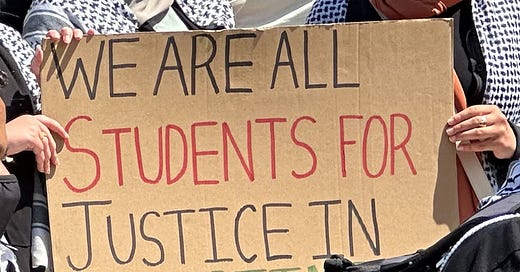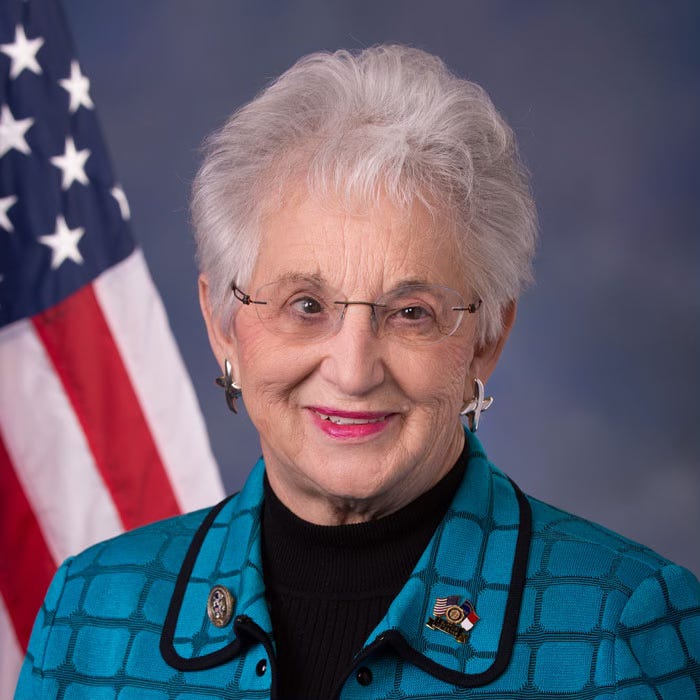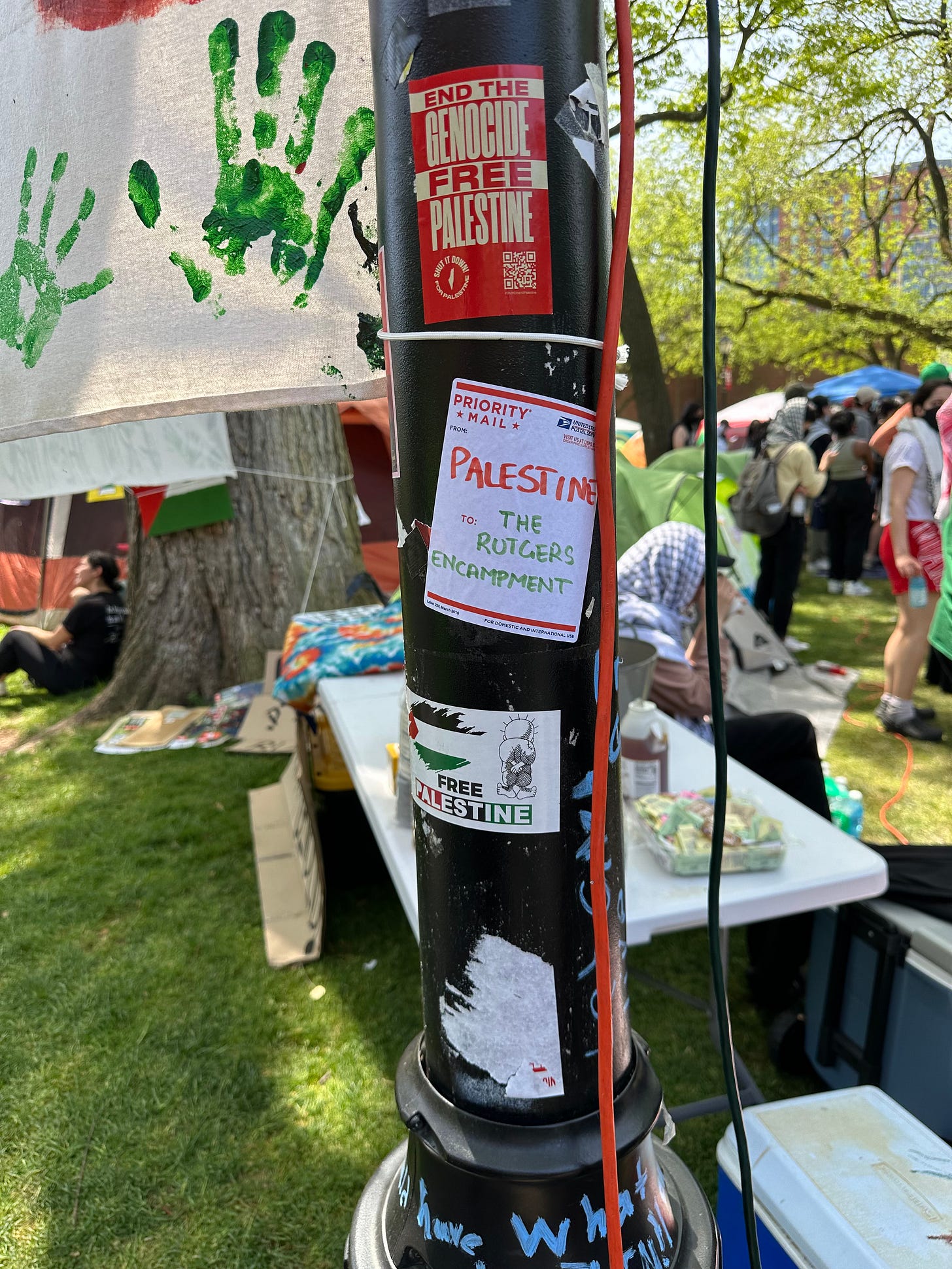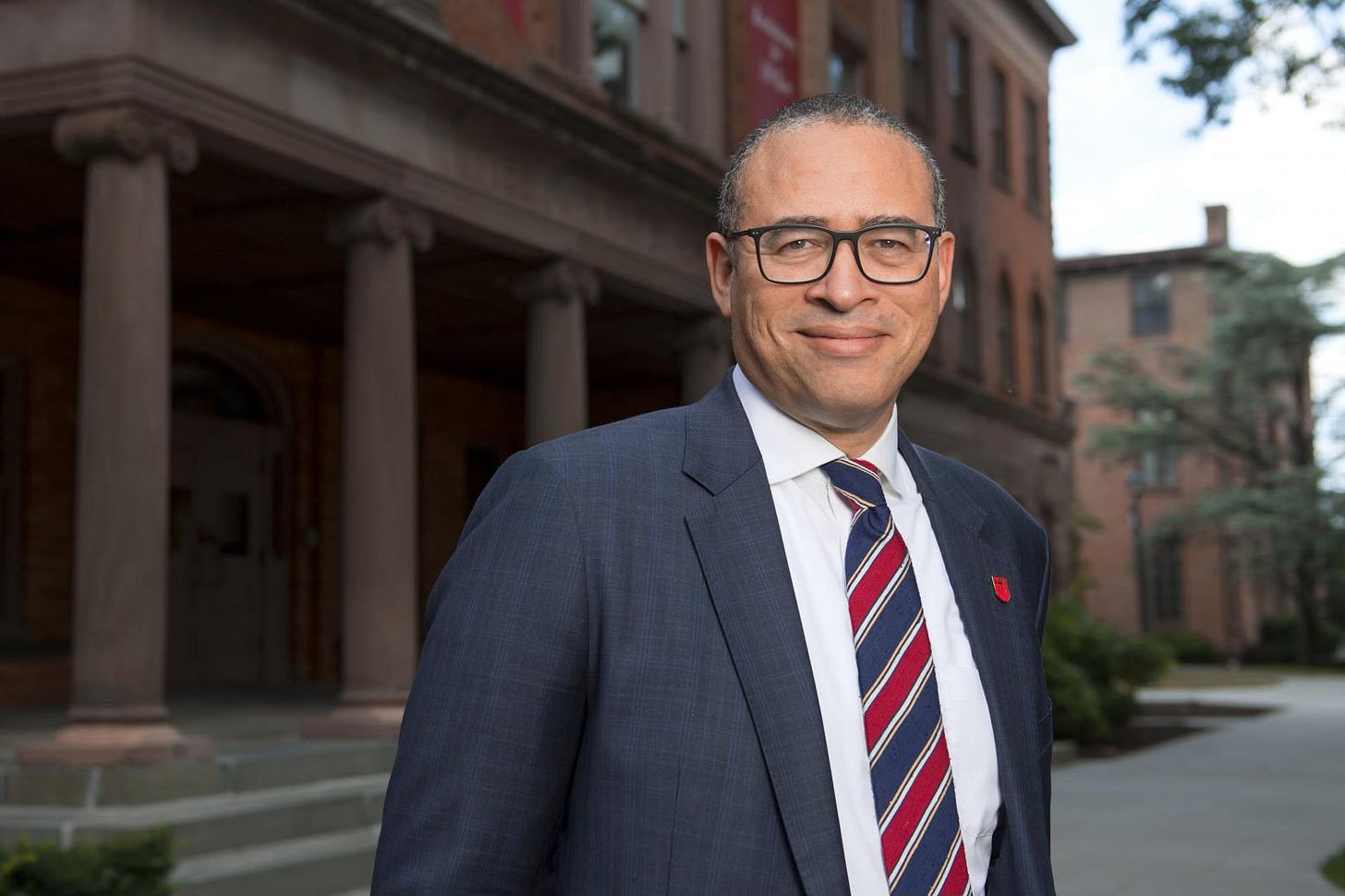Note: I wrote this shortly after the recent hearings in front of the House Committee on Education and the Workforce featuring, among others, Rutgers University President Jonathan Holloway. I was waiting to hear if it was going to be picked up elsewhere, and I was traveling (I’ll be sharing a travelogue in a few days). I’m sharing it here now.
The presidents of Yale and University of Michigan are the latest to be called out by the committee, though what the committee is calling “transcribed interviews.”
The Show Trials Continue
U.S. Rep. Virginia Foxx wants us to believe that her committees grilling up of university presidents on Thursday was about accountability.
The North Carolina Republican, who chairs the House Committee on Education and the Workforce, summoned the presidents of Rutgers and Northwestern universities and the University of California-Los Angeles to a hearing titled “Calling for Accountability: Stopping Antisemitic College Chaos,” where she and her Republican colleagues preprocessed to press a single narrative: America’s college campuses have become nests of radicalized students and faculty and that Jews should and do feel unsafe.
Universities, she argued, “gradually nurtured a campus culture of radicalism, in which antisemitism grew and became tolerated by administrators.” She blamed “anti-Israel DEI bureaucracies and questionable foreign funding,” and described the largely peaceful protests at campuses around the country as “antisemitic chaos” and a “powder keg of pro-terror campus fervor.”
I was out at the Rutgers encampment twice — on its first day and shortly after university administrators threatened to send in police. What I saw were students committed to a cause, and who deserved praise for engaging in world affairs — even as their generation is regularly pilloried for apathy or being addicted to their phones. The camp was well organized to create “tension,” to use Martin Luther King Jr.’s word, and force power to the negotiating table. Rutgers ultimately sat down with students and agreed to most of the protesters’ demands, though not its main ones — divestment from companies doing business with Israel and the severing of ties with Tel Aviv University.
Thursday’s hearing was round three in a show trial that has offered more heat than light. It followed a script similar in tactics and rhetoric to previous hearings, and presented a distorted picture of campus life at Rutgers, where I teach, and across the country, and the realities of higher education.
Rutgers’ unions — and faculty unions at Northwestern and UCLA — pushed back. They held a press conference during which they called out the reactionary nature of the hearings and the false premises that conflates of Israel with all Jews and Muslim students with terrorists (or terrorist sympathizers). The hearings were erected on parallel bigotries — on an antisemitic that assumes Jews think as a single mind and an underlying Islamophobia that has governed much of the American response to Palestine and to the Arab world.
“I am a Jewish faculty member, and I was at Rutgers’ encampment multiple times while it was up,” said Todd Wolfson, president of the AAUP-AFT chapter at Rutgers, which represents full-time tenured and non-tenured faculty, graduate workers, and post-docs. “Not once, not once did I feel unsafe. Not once did I see antisemitism in those encampments.”
Students were critical of Israel, he said during the press conference, and “that is not the same as antisemitism.”
“I saw students stand up to any form of hate, including Islamophobia and antisemitism,” he said. “And they were not outside agitators. They were my students in my classes, and when we went on strike last year they walked the picket line with us.”
Sherry Wolf, a Jewish anti-Zionist activist who was in Washington for the hearing, described the hearing’s central narrative as “racist,” and as “implicit tribalism about Jews and ‘Islamic’ students.”
The narrative being pressed by Foxx and others treats Jews as a single, monolithic entity with a single voice — something several national Jewish groups like the ADL and AIPAC are only too happy to endorse. Only one position is possible, despite the diversity of opinion within our community, especially among younger Jews who have been far more critical of Israel and supportive of Palestinian rights than their parents.
It ignores the diversity of those in the encampments, who cut across racial and religious boundaries at Rutgers. And it assumes that, despite participation by many Jewish faculty members as security marshals and student protectors, and a growing organization of Jewish faculty who are critical of the arguments being pressed by the ADL and Hillel that continue to misrepresent the campus climate and, in turn, create the very dangers to Jews they claim to be defending against.
Foxx Congressional Republicans also continued to push the lie that the student protestors were terrorists or operating under orders from terror groups. She accused the university presidents of capitulation to “pro-terror protestors,” and threatened them with funding cuts.
Rutgers President Jonathan Holloway pushed back, though his response — like that of all three university presidents — continued a practice of leaving certain arguments unchallenged.
“They were not, as some have characterized them, terrorists,” he said. “They were our students.”
Holloway should’ve directly called out the racist assumptions underlying the “terrorist” language, the assumption that anyone who supports the Palestinians — and especially anyone who is brown or Muslim — is by nature a terrorist. He didn’t. Instead, his comment unfortunately echoed John McCain’s defense of Barack Obama during the 2008 presidential campaign, when McCain responded to a woman attacking Obama as an “Arab” by saying he was not an Arab but a “decent family man” — as if “family man” and “Arab” were diametrically opposed identities.
This does not imply an absence of antisemitism. It is on the rise, but these protests are not a product of antisemitism; they are the logical outgrowth of the carnage we are witnessing in Gaza, a level of violence and destruction that can no longer be tied to the Oct. 7 attacks and is now nothing more than an attempt to ethnically cleanse the 140-square mile enclave of its nearly 2.4 million inhabitants.
Student outrage at Israel’s war and treatment of Palestinians, along with the unwillingness of college presidents to push back against powerful donors and politicians, were the catalysts behind many of the tent encampments. Students — like those in the mid-sixties at Berkeley who led the Free Speech Movement — demand a say in how their schools were managed. They want a say in how money is spent and where reserves and endowments are invested. Those in power don’t want this, which leads to conflict.
At Rutgers and Northwestern, which also reached agreement with protesters to close the camps, students learned that they are not powerless in their lives. Collective action can work, and that their voices matter. At Columbia and many other schools, the lessons were different. They were about tyranny of power and its willingness — by calling in police — to endanger students to ensure that order and propriety are the only values that matter. As U.S. Rep. Corey Bush (D-Mo.) said during the rebuttal press conference, these students were met with an armed response, by policed in riot gear, and in many case by violence.
In a democracy (or democratic republic) like ours, we want students to pursue their beliefs, and to see that real dialogue can lead to changes. We should not be subjecting them to brute force.







